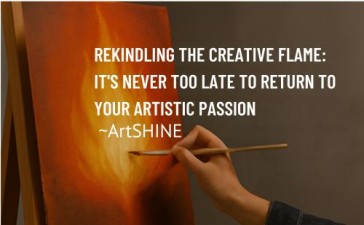In the journey of artistic development, selecting the right mentor is crucial. A mentor should not only guide and inspire but also prioritize your interests, ensuring a nurturing environment free from conflicts of interest. Unfortunately, there have been instances where mentors, who are also active practitioners in the same field, have misused their position, leading to ethical concerns and potential exploitation of their mentees’ work.
Understanding Conflicts of Interest
A conflict of interest arises when an individual’s personal interests potentially interfere with their professional responsibilities. In the context of mentorship, this can occur when a mentor is also a competitor in the same field. Such dual roles can blur boundaries, leading to situations where the mentor might prioritize their own success over the mentee’s development. The College Art Association emphasizes the importance of disclosing potential conflicts to maintain ethical standards in professional relationships.
Real-World Examples of Ethical Breaches
There have been notable instances highlighting the misuse of mentorship positions. For example, in 2024, a junior high art teacher in Canada was accused of selling his students’ artwork on his personal website without their consent. He assigned a project titled “Creepy Portraits” and subsequently sold the students’ creations on various merchandise, listing himself as the artist. This act not only infringed upon the students’ intellectual property rights but also violated the trust inherent in the teacher-student relationship.
Finding a Mentor with Integrity and No Conflicts of Interest
When selecting a mentor, it is crucial to find someone who is deeply connected to the industry but does not directly compete with you. An ethical mentor should focus on guiding, supporting, and opening doors for their mentees rather than using their work for personal gain.
For example, some coaching programs ensure that the mentor does not commercially practice in the same space as their students. Instead of competing, these mentors dedicate their time to connecting artists and designers with the right industry players—licensees, manufacturers, art directors, and collectors. They focus on growing their mentees’ careers without creating a conflict of interest.
A mentor who actively sells or licenses their own work while coaching could present a risk to your creative ideas. They may unintentionally (or intentionally) use your work as inspiration or even compete for the same clients. A trustworthy mentor is someone who values your growth and success above their own commercial endeavors in the same space.
So, when choosing a mentor, look for someone well-connected in the art and design world—someone who builds relationships with key industry figures and facilitates opportunities for their students rather than competing with them. An ethical mentor understands the importance of maintaining transparency and trust, creating a space where artists feel safe sharing ideas and trade secrets without fear of exploitation.
The next time you’re considering a mentor or teacher, ask yourself: Are they still selling and licensing their own work? If so, is there a potential conflict of interest?
Finding a mentor who prioritizes your success without competing in the same market can make all the difference in your artistic journey.
Strategies for Selecting the Right Mentor
- Assess Potential Conflicts of Interest: Ensure that the mentor does not have competing interests that could compromise their ability to provide unbiased guidance.
- Seek Transparency: A trustworthy mentor will be open about their professional activities and any potential overlaps with your work.
- Prioritize Ethical Standards: Look for mentors who demonstrate a commitment to ethical practices, including respecting intellectual property rights and maintaining confidentiality.
- Value Alignment: Choose a mentor whose values align with yours, ensuring a harmonious and supportive relationship.
- Professional Boundaries: A good mentor maintains clear boundaries, focusing on your development without encroaching on your creative space.
Conclusion
Selecting the right mentor is a pivotal step in your artistic journey. By carefully evaluating potential mentors for conflicts of interest and ethical integrity, you can foster a relationship that supports your growth and protects your creative contributions. Remember, a mentor’s role is to guide and inspire, not to compete or exploit.
Want to learn more?
- Find out more
- Launch Pad + Accelerator Expressions of Interest
- Selling and Licensing Your Art & Designs Around the World with ArtSHINE.
We’re here to help you to take action, just like we’ve helped thousands of other entrepreneurs, business owners, and creative professionals all around the globe.
Now is the time to let your passion SHINE.
Now is the time to Make Tomorrow Today!
To your success, Vinh Van Lam and Stuart Horrex Cofounders
ArtSHINE.com





